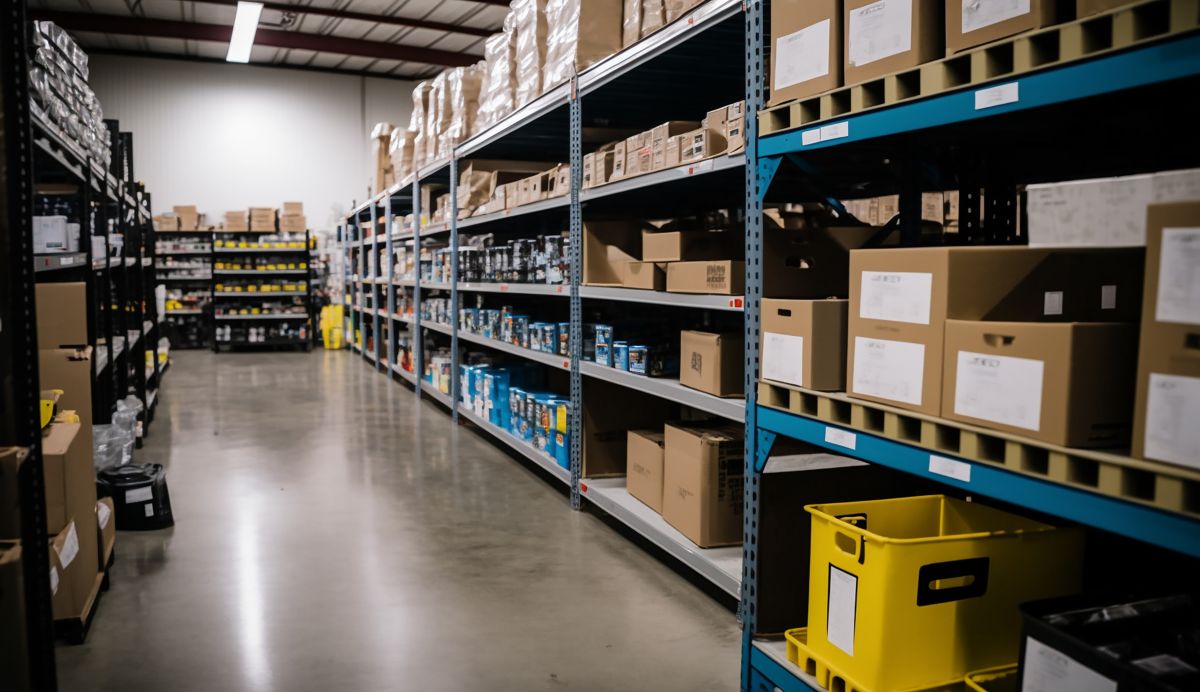Every business, regardless of size or industry, accumulates various files and equipment over time. Properly storing these items is crucial for maintaining organization, complying with regulations, and preserving the value of assets.
This quick guide aims to help businesses understand the importance of long-term storage solutions and explore various options for files and equipment.
Types of Business Files and Equipment And Storage Solutions

Every kind of business file and piece of equipment requires a specific storage solution. Here are some examples:
1. Physical Documents
Physical documents come in many forms, including paper records, blueprints, and legal documents. Proper storage can ensure the longevity of physical documents and facilitate easy retrieval when needed.
Additionally, it can help businesses comply with document retention policies and regulations. If you’re looking for a physical, long term storage solution, you may consider the following options:
- On-Site Storage: On-site storage solutions, such as file cabinets and storage rooms, provide easy access to physical documents. However, they can also take up valuable office space and may not offer the best protection against environmental factors or security threats.
Businesses should invest in high-quality storage furniture and implement organization systems, such as labeling and categorization, to maximize the effectiveness of on-site storage.
- Off-Site Storage: Off-site storage options, like records management facilities and secure storage units, offer enhanced security and protection for physical documents. These facilities often feature climate control, fireproof and waterproof storage, and advanced security measures.
While off-site storage can be more expensive, the added protection and preservation benefits often outweigh the costs, especially for critical or sensitive documents.
- Preservation Techniques: Preserving physical documents involves protecting them from factors that can cause deterioration, such as humidity, temperature fluctuations, and exposure to light. Climate control, acid-free storage materials, and fireproof and waterproof storage solutions can help prolong the life of documents and maintain their integrity.
Additionally, businesses should establish protocols for handling and storing documents to minimize the risk of damage or loss.
An efficient storage solution helps secure physical documents by protecting these materials from damage, loss, and unauthorized access.
2. Digital Files
In today’s digital age, businesses generate many digital files, such as documents, multimedia files, software, and databases. Storing these files securely and efficiently is crucial to avoid data loss, maintain business continuity, and protect sensitive information.
Digital file storage solutions should prioritize data security, accessibility, and scalability to accommodate the growing needs of businesses. Here are your options:
- Local Storage: Local storage options, including external hard drives and network-attached storage (NAS) devices, allow businesses to store digital files within their premises. These solutions offer quick access to data but may have limited storage capacity and be vulnerable to physical damage or theft.
Businesses should enforce security measures such as encryption and access controls to safeguard local storage.
- Cloud Storage: Cloud storage services provide off-site, scalable storage solutions for digital files. Public cloud services, private cloud services, and hybrid cloud storage options offer varying levels of data security, accessibility, and customization to suit a business’s specific needs.
Cloud storage can reduce the risk of data loss and facilitate collaboration among team members. However, businesses should carefully evaluate cloud storage providers for compliance with data privacy laws and industry regulations.
- Data Backup Strategies: Data backup strategies are essential for preserving digital files and ensuring business continuity in case of system failure. Regular backups, off-site backups, and adherence to the 3-2-1 rule (three copies of data stored on two different types of media and one copy stored off-site) can help businesses maintain the availability and integrity of their digital files.
A reliable backup strategy can save businesses time, money, and effort in the long run by reducing the risk of data loss,
Choosing the best data storage solution for your business is crucial for ensuring your data is secure and accessible.
3. Equipment
Businesses often have various types of equipment, including office, manufacturing, and specialized tools and machinery. Securing this equipment ensures its longevity, maintains its value, and prevents damage or theft.
Safe and efficient equipment storage strategies, like the following, are crucial for businesses that rely on their equipment to operate.
- On-Site Storage: On-site storage options, such as designated storage areas and proper organization and labeling, provide easy access to equipment and facilitate efficient operations. However, businesses must ensure that these areas are secure, well-maintained, and organized to prevent equipment damage, loss, or theft.
Additionally, businesses should regularly inspect and service stored equipment to maintain its functionality and value.
- Off-Site Storage: Commercial storage facilities and specialized equipment storage solutions offer secure, dedicated spaces for storing business equipment. These facilities often provide climate-controlled environments and advanced security measures, ensuring the equipment’s safety and longevity.
While off-site storage can be more expensive, the added protection and preservation benefits may be worth the investment, particularly for valuable or sensitive equipment.
- Maintenance And Preservation: Routine inspections, servicing, and using protective coverings and appropriate storage conditions can help businesses maintain their equipment in optimal working conditions. Proper inventory management can also prevent equipment from being misplaced or forgotten, ensuring it remains functional and valuable to the business.
Investing time and resources in equipment maintenance and preservation can save businesses money by reducing repair or replacement expenses.
Organizing and preserving equipment in suitable storage environments can reduce the risk of accidents, streamline operations, and ultimately save money for the business.
Legal And Regulatory Considerations

There are several legal and regulatory considerations that businesses must take into account when managing their equipment, such as:
1. Document Retention Policies
Understanding and complying with industry-specific and government regulations regarding document retention is essential for businesses. Retention policies dictate how long certain documents must be kept and may vary depending on the type of document and the industry.
Failure to comply with these policies can result in fines, penalties, or legal issues for the business.
2. Data Privacy And Security
Data privacy and security are critical considerations for businesses storing digital files. Implementing encryption and access controls while ensuring compliance with privacy laws can help companies protect sensitive information and avoid costly data breaches.
Businesses should be proactive in assessing and managing their data security risks and staying informed about changes in privacy regulations.
3. Disposal Of Files And Equipment
Proper disposal of files and equipment is essential for maintaining the security of sensitive information and minimizing environmental impact. Secure shredding services can help businesses dispose of physical documents safely, while responsible recycling options can ensure equipment disposal aligns with environmental best practices.
Proper disposal procedures can help businesses maintain a positive reputation and avoid legal issues related to data breaches or environmental damage.
Conclusion
Long-term storage for business files and equipment is essential to business operations. A well-planned storage strategy balances accessibility, security, and cost while adapting to the changing needs of the business.
By investing in appropriate storage solutions and following best practices, companies can ensure their valuable assets remain protected, organized, and ready for use when needed.
Read Also:
- How To Design A More Inviting & Productive Office Space
- How To Set Up Your Small Business With A Virtual Office Solution?
- How To Effectively Manage Your Data Centre Infrastructure?
















